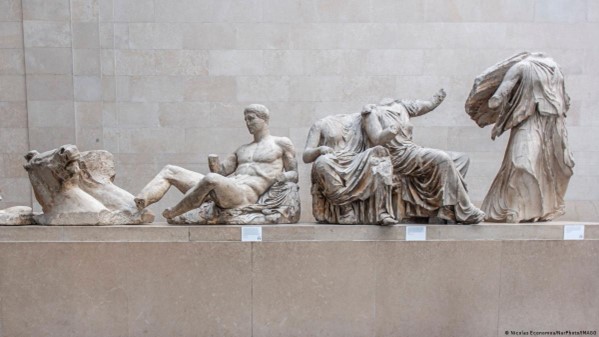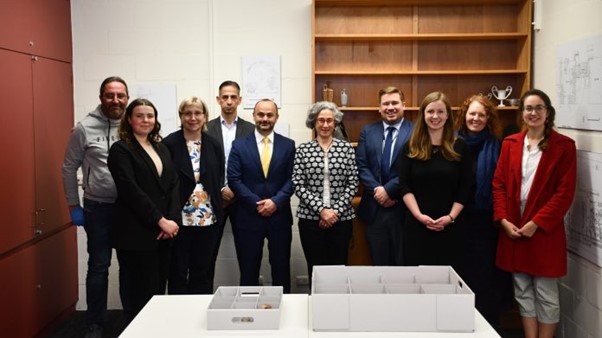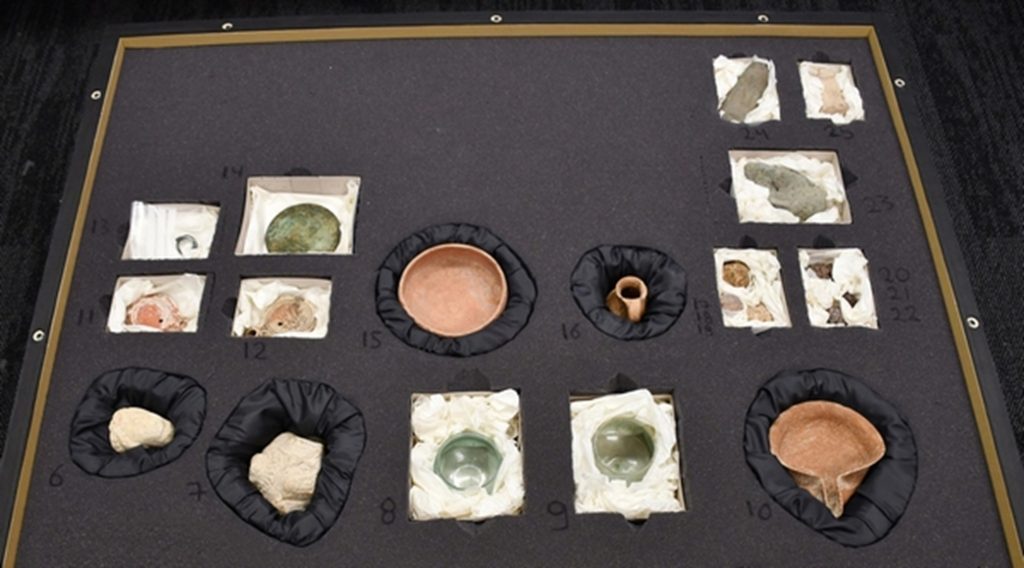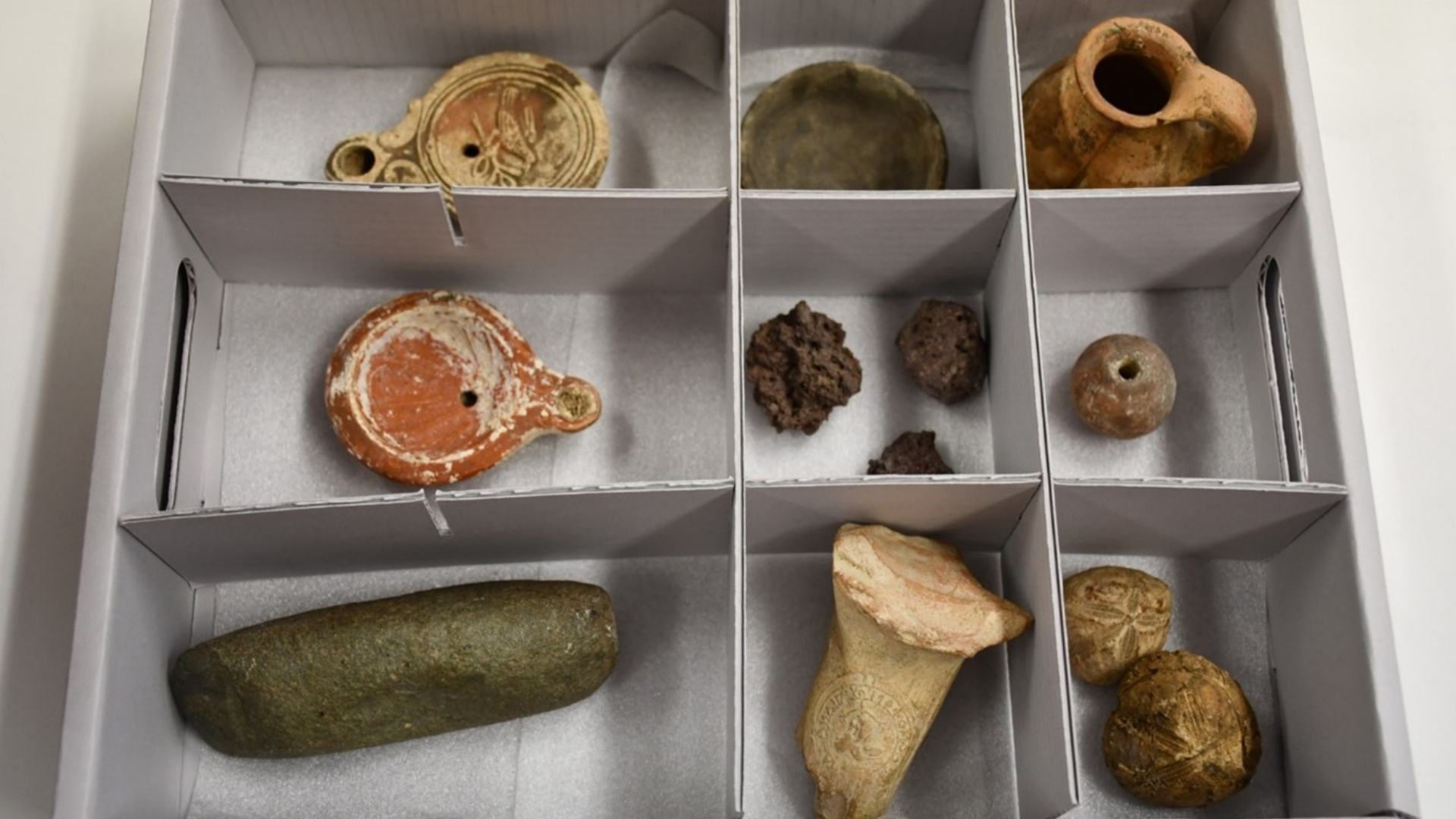By Michael Kyriakou.
When President Macron of France visited the Africa nation of Burkina Faso in 2018, he said: “I cannot accept that a large part of cultural heritage from several African countries is in France. There are historical explanations for that, but there are no valid justifications that are durable and unconditional. African heritage can’t just be in European private collections and museums.”
France instigated a five-year plan to analyse their collections and see if it stood up to contemporary ethical ownership values.
Victors of conflict would often walk away with the “loot,” not only because the “loot” looked fancy or was made of precious metals, but it was also about stealing the conquered people’s identity and self-esteem.
Rome has many monuments it took from Cleopatra’s Egypt, the Greek speaking world and beyond. The British Museum has over 8 million artefacts, according to human rights UK lawyer Geoffrey Robertson – the largest number of stolen goods anywhere in the world.
The Parthenon marbles are perhaps in the same league as the stolen gems from an Indian prince now part of the UK Crown which the current British monarch and his advisers’, sensing a wind of change, cleverly and quietly removed from some of the crowns.

What about Turkey? Perhaps the world’s largest outdoor museum, Turkey is the home of Greek and Roman-Italian heritage. Since the Iron Age, more Hellenism was to be found on the coast of Asia Minor than mainland Greece.
With Roman invasion followed by Byzantium, the heritage of the Greeks of Asia Minor – in the form of buildings, immense stadiums, horsetails, temples, mausoleums, libraries and ports – lack cultural ownership.
That heritage is now a tourist curiosity. What did happen to all the Greeks in Asia Minor? Where did they go?
There has always been an understanding, an expectation that the conqueror has a “free” legally recognised “reign” or right to take people and artefacts, to take and own literally what they have conquered.
It’s not a European phenomenon. It’s seen in the Arab, Indian sub-continent, and in the Turkic culture. It’s a human global phenomenon which knows no boundary.
Today stealing on an industrial scale, even for the well-worn argument of “research,” lacks total credibility.
There are of course artefacts which are so universally generic that they belong to all of humanity, but that does not mean they are vulnerable to theft. De-colonisation or the retreat of empires from conquered lands and oppression of others was perhaps the first step for people to get back their property, their heritage.
Cyprus gets its heritage back:
Wars, conflicts continue to plague humanity, and theft of heritage is slowly regulated by the laws of warfare.
The 19th century was the era of industrial sized plundering; private collectors were competing with monarchs’ and governments and corporations to add to their collections. It was to become a badge of respectability or become a “renaissance” person to boast Greek statues, icons, and vases.
But Cyprus – the land and people who perhaps have experienced a fair share of humanities wars, invasion, and occupation – represents how a small ancient land and heritage is able to retrieve the items that tells the world their history.
Cyprus is slowly clawing back its heritage.

The recent return of artefacts from the USA and Australia in the last few weeks shows a willingness by private collectors with a conscience, national museum and universities to work together to “do the right thing” – return heritage back home.
The Cyprus Community of New South Wales Ltd has historically been active to locate and report on stolen artefacts.
The Community’s Justice for Cyprus Committee has been at the forefront lobbying for the Cyprus cause and preserving, protecting and promoting Cyprus’ unique heritage.
Recently, a private collector identified items in their collection and volunteered the return of the artefacts home to Cyprus. This is a unique event, one which the Community has strived to ask all collectors to look out for such artefacts.
Hosted by The High Commissioner of the Republic of Cyprus, Antonis Sammoutis, and The Cyprus Community of NSW, it symbolises a turning opinion.
The internet and foreign governments make it virtually impossible to track artefacts, but the Community is determined to educate all and hunt for the return of their heritage.
Dr Marina Solorio Ieronymidou, Head of the Cyprus Department of Antiquities, visited the Community and was impressed by the works of one of the Community’s leading members Mr Jim David who had tracked down at least two icons purchased and returned them to Cyprus.
Mr David was congratulated by Dr Solorio Ieronymidou.

This event has inspired the Community to set up an Archaeology & Heritage committee to support the “hunt” for the artefacts and their return, and support the Australian excavations in Cyprus.
The first Australian excavations to be supported is Kato Paphos which have been going on since 1995.
Through this new Committee consisting of academics, Community members, students and teachers, the Community will promote and preserve Cyprus’ heritage.
An annual Archaeology Dinner Lecture is planned for Saturday, June 24. Further details will be published shortly.
This new impetus to hunt and returns the artefacts also has a new driving force – the new Cyprus Museum, the largest of its type in the Middle East. The result of an international architectural competition, the new museum will be the home of the largest collections of Cypriot artefacts.
The Community is engaged with Cyprus to contribute and support this historical venture.
The Community believes this is the first step to catalogue the artefacts throughout Australia and form a greater understanding of the ancient heritage of Cyprus and its impact on westerner and near east civilisation.
This movement will only grow as the conscience of nations to right the past can no longer be ignored. The return of the Parthenon marbles will be the test case.

